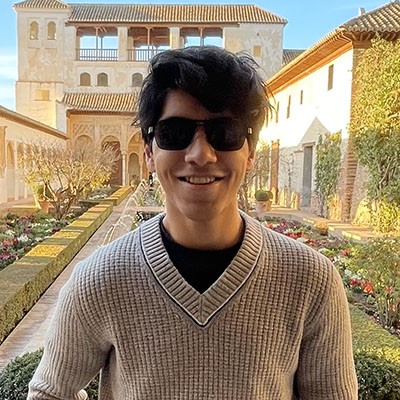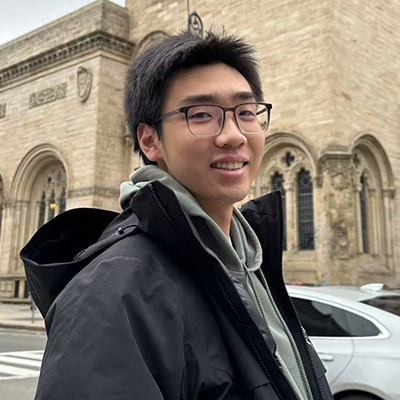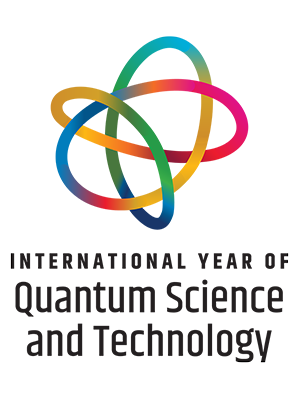Quantum researcher Avery Linder has known since freshman year of high school where she wanted to attend college (the University of Chicago) and exactly what she wanted to study (business economics).
She was half right.
“I was going to go into the finance world and do banking,” Linder said, laughing. “That was going to be my life.”
Instead, once she arrived at UChicago, she found herself entranced by the flourishing field of quantum engineering, a field already revolutionizing computing, communications, health, cybersecurity, manufacturing and all aspects of research.
She first took a few electives to find out more about technologies she might engage with in her banking career. Soon, she was the one in the lab building tomorrow’s innovations.
“What was cool about doing the hands-on research, and what I found that I fell in love with, was this idea that, especially as it pertains to quantum, you’re part of the next big thing,” she said.
UChicago and the UChicago Pritzker School of Molecular Engineering (UChicago PME) sit at the center of a vast quantum hub poised to change the world. And through a quantum track Molecular Engineering major and a Quantum Information Science minor, the opportunities for a new generation of quantum researchers are boundless.
A dual Molecular Engineering and Economics major, Linder is heading straight into industry after graduation as President and CEO of a startup based on a revolutionary diamond-bonding technique she helped develop. Others are headed for national labs or onto PhD and Master’s programs at UChicago PME or other global institutions.
“UChicago teaches its students how to think, not what to think,” Linder said. “That's really important for this quantum movement, this quantum ecosystem that's being built in Chicago.”
“But of course,” she added. “I'm biased.”
‘That Smaller Infinity’

“One of the reasons that I think quantum engineering is just so compelling, and this discipline is so exciting, is because we’re harnessing a new, often counterintuitive set of rules,” said Rohan Mehta, also a fourth-year Molecular Engineering major on the quantum track. “The quantum nature of reality enables us to envision new technology that leverages the rich and complex physics outside of the so-called ‘classical’ world.”
Quantum at its core is the idea that, at the smallest scales, physics works very differently than what people are accustomed to. Exploring this new physics is helping create such engineering marvels as superconducting processors, massive communications networks, unhackable communications, unparalleled memory storage, high-powered lasers and crystal-clear televisions, and sensors powerful enough to detect changes in individual atoms or early-stage cancers. Quantum can also create jobs, particularly in the emerging quantum hub centered on Chicago.
While Linder found quantum at UChicago, Mehta came to UChicago for it.
“When I was applying, there were only a select number of universities across the country that were eagerly expanding into the nascent field of quantum technology. Even among those that were, that didn't necessarily translate strongly to the undergraduate level,” Mehta said. “UChicago had this exciting investment into undergraduate involvement in quantum engineering and quantum science.”
Linder said the desire to explore the quantum world is the same as the pull to explore the vast reaches of space.
“That same infinity exists at a smaller level right before our eyes. It’s that smaller infinity – that infinity at the small scale – that quantum explores,” she said. “Not only should we explore space, but we should explore what sets the atomic level around us, and how can we leverage that to revolutionize the world.”
‘The Quantum Scene’
Beyond the classroom, both Linder and Mehta are taking full advantages of the UChicago experience.
They are two of the UChicago undergrads engaged in hands-on research in UChicago PME quantum faculty – Mehta with Prof. Liang Jiang, Linder with Asst. Prof. Alex High. They are both involved in the UChicago Quantum Society, the university’s official student organization dedicated to quantum science and engineering.
Mehta is co-president of the society, a student-led, student-run, student-organized mutual aid group offering networking and research opportunities, study help, outreach and community to any undergrad interested in quantum.
“One of the reasons I came to UChicago was because of the quantum scene,” he said.

But a Molecular Engineering major is not the only way UChicago undergrads can incorporate this emerging field into their studies. For Tom Xing, a third-year researching in UChicago Prof. Andrew Cleland’s lab, UChicago’s Quantum Information Science minor was the ideal way to supplement his Mathematics major.
“Mathematics can feel detached from reality in a way. There are so many great mathematic objects, but there aren't many things you can get your hands on directly,” Xing said. “Quantum, on the other hand, is beautiful in its theory, and you can see a lot of real-world applications for it.”
Mehta and Xing plan to pursue academia for the time being, with Mehta heading to Harvard in the fall to pursue his PhD in quantum information theory. Linder is working with the University’s Polsky Center for Entrepreneurship and Innovation to turn a technique for building quantum materials she helped develop in High’s lab into a startup. That startup, staC12, is currently in the finals for the Polsky Center’s George Shultz Innovation Fund.
For Linder, the startup world was the perfect marriage of the finance she came to UChicago to study and the science she found here.
“UChicago’s Molecular Engineering program, especially at the undergrad level, is one of a kind,” she said.
2025 International Year of Quantum Science and Technology

The United Nations declared 2025 the International Year of Quantum to mark a century of progress in quantum science and engineering. The University of Chicago and its partners join the celebration of the groundbreaking fields that continue to positively impact lives around the world.